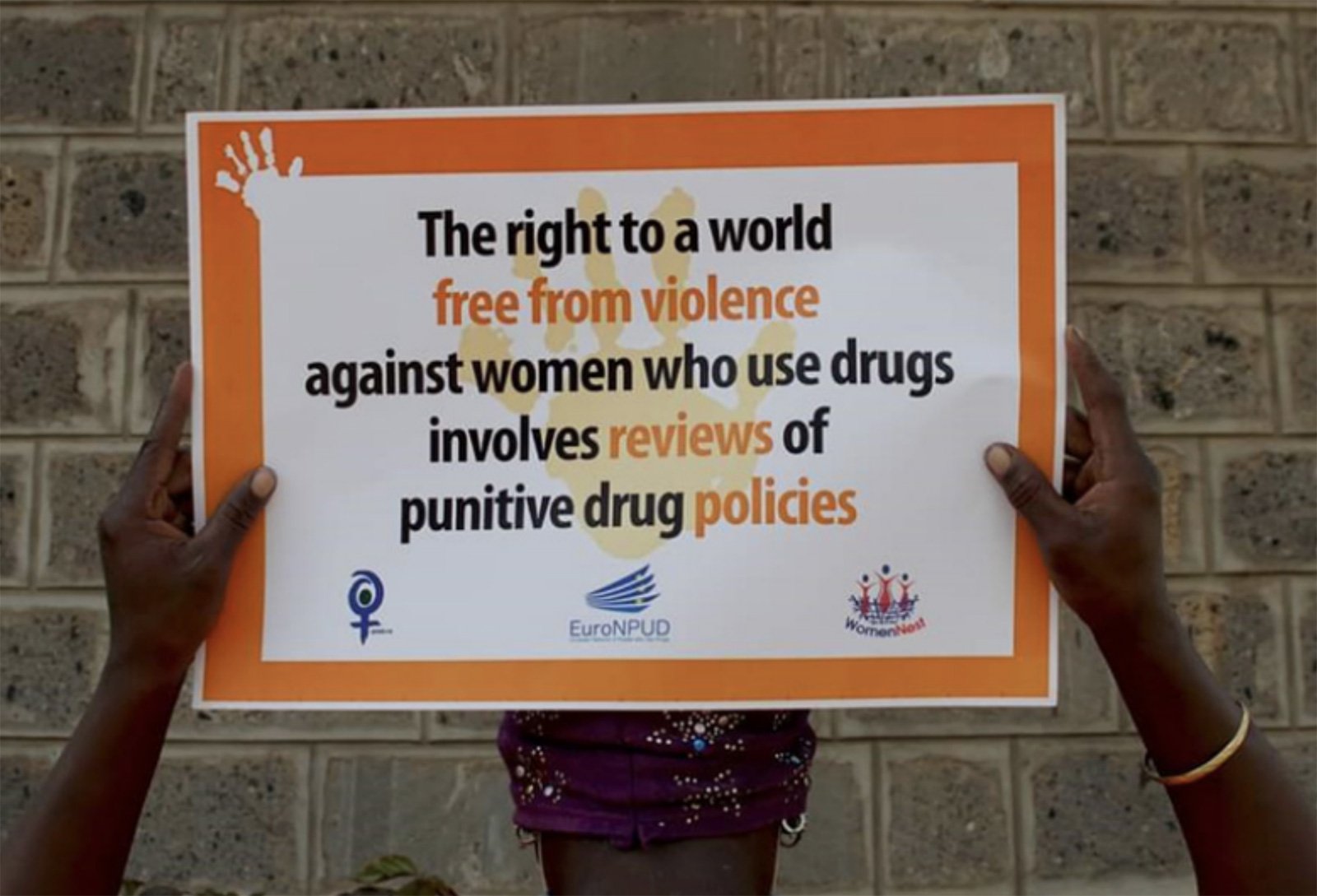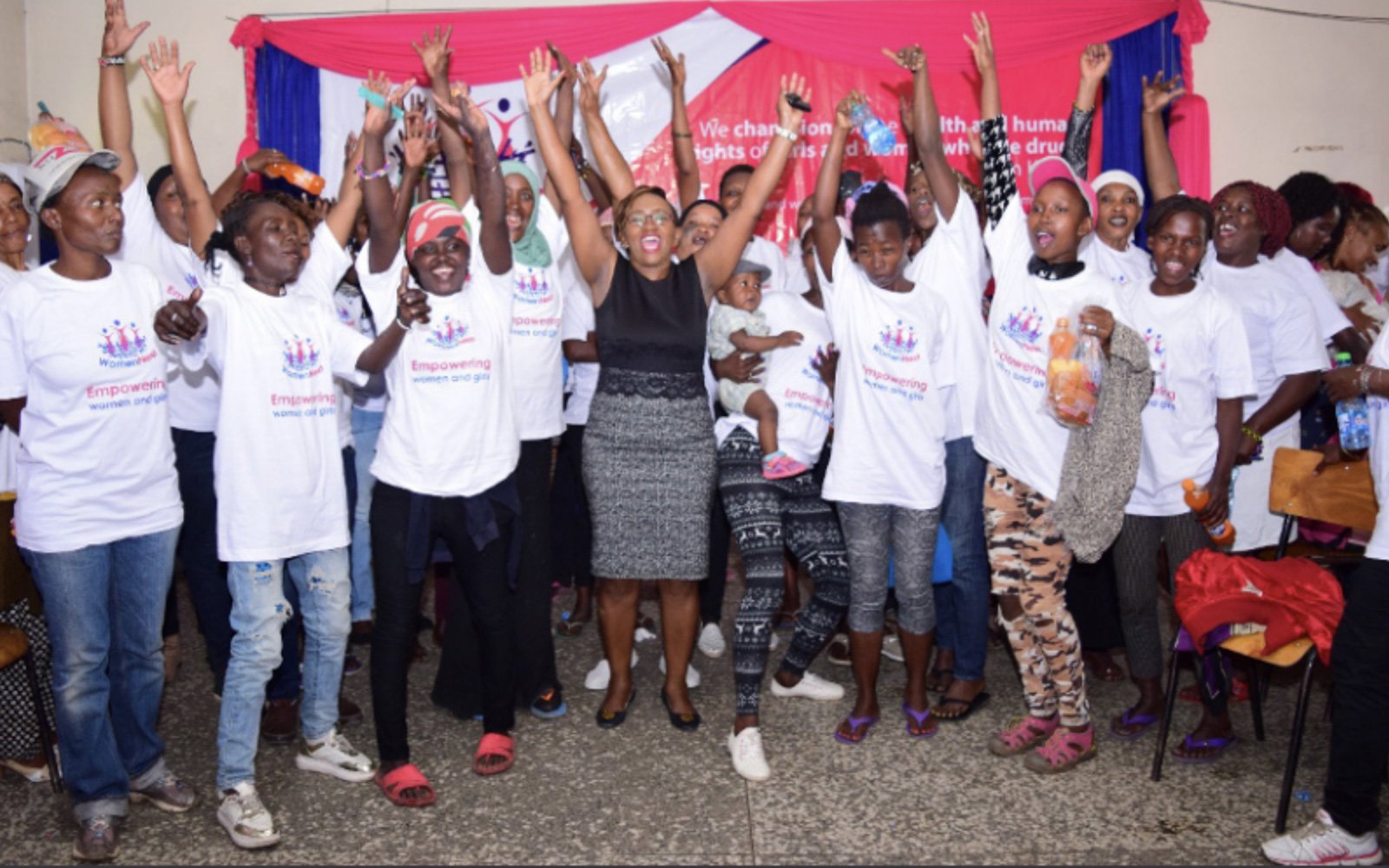Can you tell us about your interest in women and harm reduction?
Women who use drugs (WUD) in Africa are subject to many demeaning labels such as being an incompetent and careless mother, a bad, valueless and sinful woman. Punitive drug policies add another label for WUD, that of a criminal. These labels cause women to experience elevated levels of stigma, discrimination, violence and other human rights violations in all spheres of life, compared to women in the general population. While I was working directly with WUD through a harm reduction service, I became more aware of the challenges experienced by women who use drugs. In community-based harm reduction programs serving people who use drugs, only 10% of clients are women.

However, HIV prevalence among women service users are three times higher than among male clients. These statistics were very worrying because they showed that the harm reduction programs were missing the HIV prevention needs of women. As well as not accessing services, WUD were left out of service planning and research. I felt that this situation needed to change, and that an organisation focussed on women who use drugs would be the best way to start. This created an interest which also led to the concentration of my doctoral studies on women and harm reduction.
How and why was Women Nest established?
Women Nest was established in 2019 by a group of women who use drugs and women working in harm reduction programs. Women Nest aimed to focus on the specific needs of women that were not being catered for or were only partially addressed by existing harm reduction programs as well as providing much needed safe spaces. The specific activities included sustainable livelihood projects, childcare services, follow-up supports for incarcerated women, sexual and reproductive health including family planning services and efforts to address gender-based violence (GBV). Women Nest’s board of directors is composed of women who use drugs, women harm reduction advocates and women health care professionals. Through the board of directors, Women Nest has managed to raise funds to provide resources and create environments that respond to the various issues and challenges experienced by WUD as well providing mentorship to facilitate empowerment. Women Nest activities are contextually relevant as community engagement is at the heart of everything we do. We advocate for the health and human rights of WUD, we fight stigma and discrimination, and we fight for drug policies that prioritize the rights of people who use drugs.
How does Women Nest engage with women who use drugs?
Women Nest has a resource centre in the informal settlement of Mathare in the Eastern region of Nairobi’s Central Business district. This location is close to where most women who use drugs live. This means that the services are accessible as women do not need to find money for transport costs. This resource centre also provides a women only safe space. Women Nest applies a comprehensive program where all the activities are planned and run by the women themselves. In all the work of Women Nest, we recognise that WUD are the experts on their own lives and so self-determination is a consistent theme in all program design and activities. Women Nest has established support groups where WUD meet to share and discuss issues. The women encourage and mobilize each other to meet and carry out their activities. Women plan, design and implement all the activities of Women Nest with support from women harm reduction advocates. Given the limited resources of Women Nest, most of the workers are currently volunteers.
Can you share more on what actions Women Nest takes in relation to gender-based violence?
WUD experience elevated levels of GBV, especially intimate partner violence which is rarely reported to authorities for fear of backlash from male partners. Women Nest has provided a safe space for WUD to report all forms of GBV. For example, when an incident of GBV is reported to us, Women Nest can work with government facilities as well as other NGOs to support women during the reporting process.Women Nest also runs a GBV intervention program that aims to change women’s perceptions of intimate partner violence as ‘normal’ or an ‘acceptable’ part of their lives and discusses strategies to prevent violence. The sustainable livelihood project feeds into GBV prevention by providing a potentially transformative source of income via the sale of beaded items to reduce financial dependence on male partners. The COVID-19 pandemic escalated GBV against women who use drugs which resulted in many of the women becoming
homeless. Homeless and at additional risk of physical and sexual violence because the curfew laws required all people to be indoors. To escape violence at home, women sought shelter under bridges, in bushes and in derelict and partially built buildings where they were at escalated risk of rape and acts of physical violence from strangers. These circumstances prompted Women Nest to establish 3 safe houses where women could spend the night in safety. Women who use drugs created a system where they identified homeless WUD and directed them to the shelters. To avoid backlash from male partners, the
women kept the location of the safe houses confidential. The WUD community also identified women who had been sexually assaulted and linked these women to the albeit limited services available during the pandemic.
How do you think Women Nest makes a difference to the women who use drugs community?
Women Nest has helped to give women who use drugs a sense of belonging and confidence to run their own lives. The women identify the things that are important to them and then focus on achieving them. Secondly, Women Nest has empowered women economically through the sale of beaded items created through their sustainable livelihood projects. Thirdly, Women Nest has established supports for women released from prison by facilitating reintegration into the community and re-establishing relationships with their children. Women Nest provides childcare for the children of incarcerated women and, following their release, Women Nest provides accommodation for women thus also supporting access to their children. The prison release program also incorporates overdose awareness in efforts to reduce fatal overdose that is otherwise common following imprisonment.
How significant has the COVID-19 pandemic been in shaping the current activities of Women Nest?
Soon after Women Nest was established, the COVID-19 pandemic happened. As I discussed earlier, the pandemic had a direct effect on increasing rates of GBV against women who use drugs, which resulted in Women Nest establishing 3 safe houses. This action decreased cases of violence and rape. Secondly, Women Nest fundraised both locally and internationally to meet the food and other needs of WUD as, drop-in centres providing food had closed. Also, food distribution services established in the informal settlement discriminated against WUD, so most of the women had been missing out on receiving a food quota. Women Nest advocated through the local administration to have some food specifically allocated for WUD and their children.


